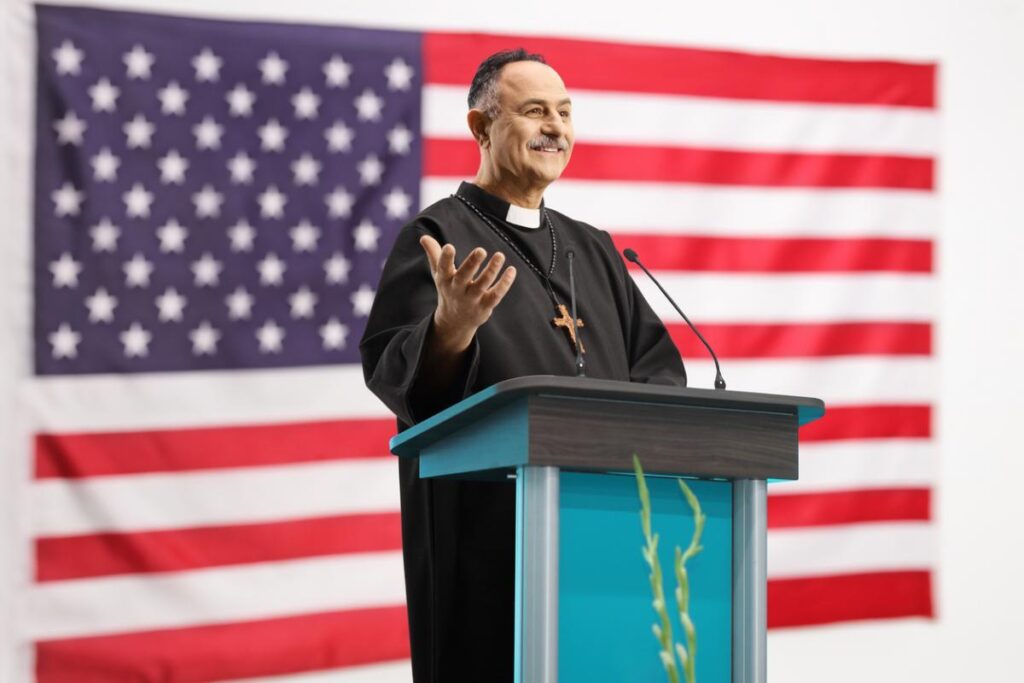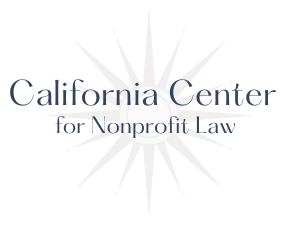
IRS Takes Position that Johnson Amendment is Inapplicable to Political Speech During Religious Services
Commonly known as the Johnson Amendment, a provision in Section 501 of the Internal Revenue Code (IRC) prohibits tax-exempt organizations under Section 501(c)(3) – including churches and religious organizations – from endorsing or opposing political candidates. The provision gets its name from Texas politician and former U.S. President Lyndon B. Johnson. Conservative legal groups have consistently argued since the Johnson Amendment’s inception in 1954 that it is unconstitutional. However, it now appears that the Internal Revenue Service (IRS) agrees with them.
Two Texas churches and the National Religious Broadcasters are currently involved in a lawsuit challenging the Johnson Amendment. In a recent proposed settlement in that case, the IRS stated that the provision should be inapplicable to political speech during religious services. According to both the IRS and the plaintiffs, political discussion during services at a church or house of worship is not the same as intervening or participating in an election, which is what the Johnson Amendment prohibits.
In the proposed consent decree, the IRS also notes that it has rarely penalized churches for political endorsements during religious services, although it has previously investigated them for Johnson Amendment violations. The IRS position aligns with President Donald Trump’s historic promises to eliminate the Johnson Amendment. During his first term in office, President Trump signed an executive order purporting to give churches more latitude under IRS rules.
The plaintiffs argued in the lawsuit that while the IRS has allowed nonprofit newspapers and other publications to endorse candidates, churches and other nonprofits have not been able to do so. According to the plaintiffs, churches should have the same freedom of speech rights as other nonprofit organizations, and that for some religious organizations, exercising their faith involves speaking out on political issues.
The proposed consent decree would prevent the IRS from requiring two churches involved – Sand Springs Church and First Baptist Church in Texas – from having to follow the Johnson Amendment, whether now or in the future. Both parties would pay their own attorneys’ fees, and neither party could appeal the consent decree, if approved by the court.
Nonetheless, the ruling may prompt other religious groups to conclude that their public endorsements of political candidates won’t result in the loss of their tax-exempt status. Some religious groups have already participated in “Pulpit Freedom” Sundays for years, encouraging preachers to violate IRS rules by endorsing political candidates during church services. However, those efforts have waned in recent years.
On the other hand, American United for Separation of Church and State is urging the judge to reject the proposed consent decree between the IRS and the plaintiffs. They claim that weakening the Johnson Amendment would effectively transform churches and nonprofits into political action committees, bringing even more dark money into the election cycle.
On the whole, Americans, including those who consider themselves religious, generally disapprove of political endorsements from churches. The Public Religious Research Institute conducted a 2023 poll finding that majorities of all major religious groups oppose or strongly oppose “allowing churches and places of worship to endorse political candidates while retaining their tax-exempt status,” including white evangelicals. The only exception in the poll results involved Christian nationalists, who opposed political activism in churches only by a narrow majority – 51%. Likewise, a 2019 Pew Research survey found that 76% of Americans, including 70% of Christians, said that clergy should not endorse political candidates from the pulpit.
However, the Hartford Institute for Religion Research recently reported that about 25% of local religious leaders described their congregations as “politically active,” whereas 40% said that their congregation was involved in “overtly political activities.”
The development we have reported on here has caused a great deal of praise and criticism in both the media and among elected officials. Please check for updates on this article to see if any changes have been made since it was posted.
Frequently Asked Questions (FAQ)
What is the Johnson Amendment?
The Johnson Amendment is a catchphrase for a provision in the U.S. tax code that prohibits nonprofit organizations from endorsing or opposing candidates for political office. The penalty for violating the Johnson Amendment is loss of tax-exempt status.
If approved, will the recent consent decree impact IRS enforcement of the Johnson Amendment?
Ultimately, even if approved by the court, the IRS consent decree is unlikely to alter the existing practical application of the Johnson Amendment by the IRS. The fact that only one church has lost its tax-exempt status in the last 70 years suggests that the IRS has historically not enforced the Johnson Amendment against churches.
Has a church ever lost its tax-exempt status due to violating the Johnson Amendment?
Yes. However, only one church has ever lost its tax exemption for political reasons – a church that took out newspaper ads opposing Bill Clinton’s presidential campaign.
Contact the California Center for Nonprofit Law Today
All businesses, including nonprofit organizations, need good lawyers. We have the expertise and experience to assist your nonprofit organization with all legal matters that you may encounter. Call the California Center for Nonprofit Law today at 949-892-1221, email info@NPOlawers.com, or complete our contact form to learn more about our services.
